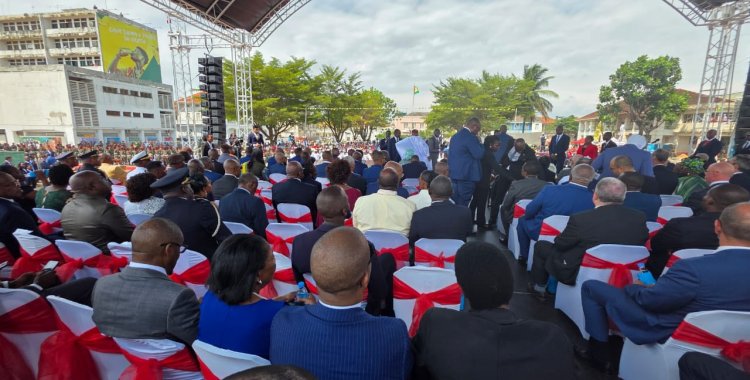In his nearly hour-long speech at the solemn celebrations of the half-century of independence, Carlos Vila Nova praised the achievements made, but said that "50 years later (...) the country is not where it should be."
"We remain overwhelmed by great evils, and the future we dreamed of in 1975 seems distant," stated the President of the Republic of São Tomé and Príncipe, citing insularity, dependence on international aid, and "less appropriate decisions" as reasons.
"Political forces are not converging on priorities and the best way to lead the country," the head of state also stated, citing the lack of essential infrastructure, "insipid and often unborn" private investment, and the lack of employment, "especially youth employment."
"But not everything is thorny (...) and what remains cannot ignore the gains," Carlos Vila Nova also emphasized, who then listed achievements and thanked all cooperation partners in a speech accompanied by the President of the Portuguese Republic, Marcelo Rebelo de Sousa, as well as high-ranking representatives from other countries.
Representing Angola was Adão Almeida, Minister of State and Chief of Staff to the President of the Republic. During his 24-hour visit to São Tomé and Príncipe, the minister delivered a message from João Lourenço to the São Toméan statesman, the content of which revolved around the bonds of fraternity that unite Angola and São Tomé and Príncipe.
"On this journey, we have counted on our partners," he said, thanking them all, but "especially acknowledging the ongoing support of Portugal and Angola," which he considered "fundamental throughout" these 50 years and "since the beginnings" of the country's independence. Carlos Vila Nova wished to greet not only the high-ranking representatives of these countries present at the ceremony but also "the people of Portugal and Angola." He had previously thanked and praised the São Toméans who, by leading the nation, managed to "maintain and perpetuate" independence, which he said was "in itself a joy to celebrate."
The President took time to describe the achievements made in these 50 years, recalling that São Tomé and Príncipe has gone from being classified as a poor country to aspired to the status of a middle-income state, recognized by the United Nations. He also listed important advances in education, where "governments sought to train a better-prepared and qualified new generation," promote greater access to universities and training centers, and also in healthcare, especially in rural areas, noting the increase in vaccination coverage and the eradication of malaria.
"What remains cannot ignore the gains," he emphasized, going on to name some areas he believes could contribute to further progress, namely tourism, agriculture, and the blue economy, "a promising area for the future."
"Have we achieved our aspirations? Could we have done more? Whatever the answer, it cannot undo such significant gains," he emphasized, praising the resilience demonstrated by the São Tomé and Príncipe people.
Insisting that São Tomé and Príncipe must achieve economic independence "capable of generating jobs, progress, and a better quality of life," the head of state recalled that democracy and the rule of law have brought greater citizen participation and called for everyone's contribution.
"Increasingly, we will have to rely more on ourselves than on others," he stated at one point in his speech, noting that the international economic situation and wars, such as the one in Ukraine, demand this, and also recalling the importance of the diaspora, both in the fight for independence and in the current situation.
The central act of the 50th anniversary of independence ceremonies took place in the capital of São Tomé, in the square where independence was declared on July 12, 1975, the date on which the country signed a General Agreement of Cooperation and Friendship with Portugal, the former colonizer. In addition to official speeches, there were also parades by cultural groups and military and paramilitary forces.







